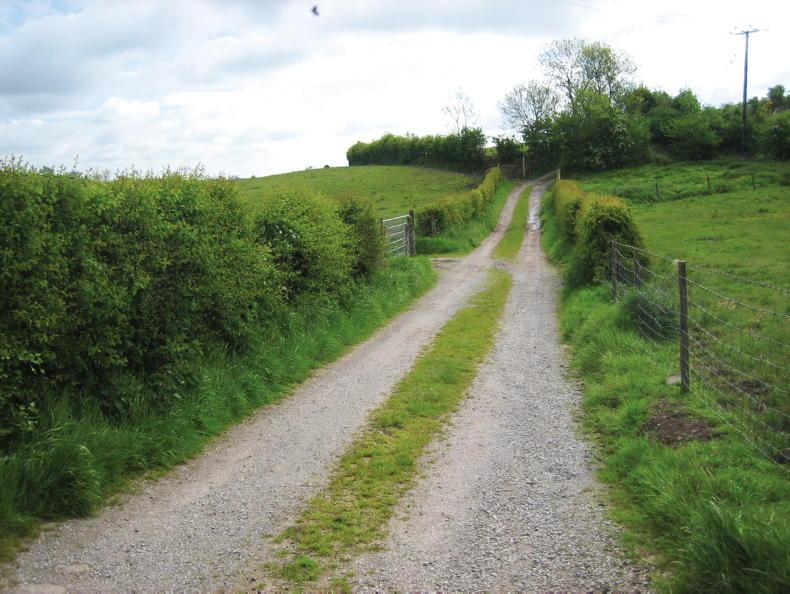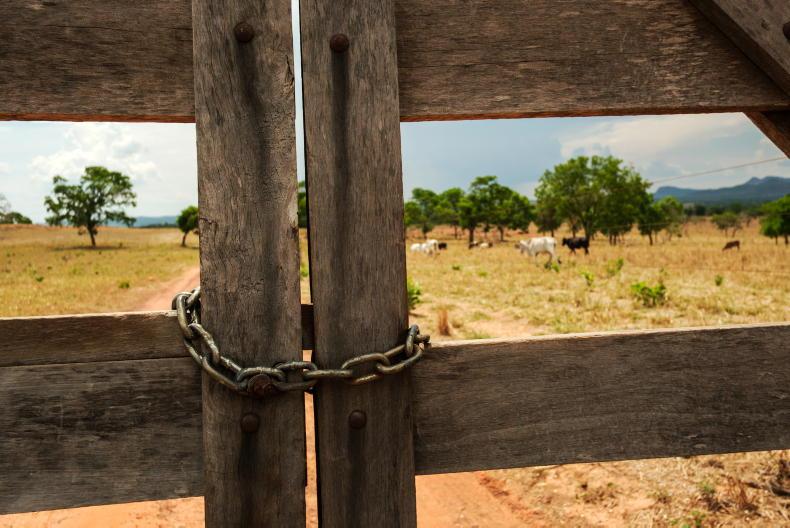The law in relation to Rights of Way (RoW) changed in 2009, which required private rights of way to be registered on a person’s legal title by 30 November 2012 which was further extended to 30 November 2021.
However, the Land and Conveyancing Law Reform Act 2021 – which was signed into law by the president on 26 November 2021 – repealed those changes, meaning that RoWsy no longer need to be registered by 30 November 2021 to avoid being lost.
Effect of new legislation
As well as repealing the major changes due to take effect from 1 December 2021, the new legislation provides that:
Claims to validate or register a RoW which are already pending on 30th November 2021 before the Courts or the Property Registration Authority, including the Land Registry, will continue to be decided under the law that applied before the 2009 act.Periods of long use that were acquired before or during the years 2009-2021 will not be lost on 30 November 2021 if no claim has been made, but can still be counted in a claim made after that date (ie the clock is not reset).New claims brought after 30 November 2021 will be largely decided under the judge-made law (the doctrine of lost modern grant) that applied before the 2009 act. This reflects the strong preference expressed by stakeholders who see this as the most satisfactory and familiar set of rules available, pending more detailed review.It will still be possible to confirm a prescriptive right either by applying to the court or by registering it directly with the Property Registration Authority. This will be optional as it was before the 2009 act, rather than a mandatory requirement to avoid losing any rights acquired through long use. Benefits of registering RoW
There are still benefits of proceeding to have your RoW registered. In the absence of the registration of your RoW, the owner of the land over which the RoW exists could prevent or curtail your access.
The rules for claiming BPS, GLAS and the Organic Farming Scheme payments provide that there must be independent and suitable access for animals and/or machinery for the farming enterprise being conducted.
The rules specify that independent access means access by public or private roadway or by a defined RoW.
Deed of RoW
By far the simplest method of registering a RoW is agreeing a Deed of RoW to be signed by both parties. Normally the solicitor who is acting for the person who uses the RoW would draft the Deed. This would be sent to the solicitor for the person who owns the land over which the RoW exists who would review it and approve it with any necessary amendments and then both landowners would sign off on it. It would then be lodged to the Property Registration Authority (PRA) to be registered.
Application to the PRA using Section 49A procedure
A new simplified system, introduced in 2011, allows landowners to register uncontested RoW directly with the PRA. The procedure is intended only for cases
where there is no dispute between the parties. The application to register an uncontested RoW is made by the person claiming to use it. The applicant must swear an affidavit (normally drafted by a solicitor) to ground the claim, ie to show how and against whom he/she claims they have established a RoW. The applicant must also arrange for a Land Registry compliant map to be lodged with the affidavit, with the RoW highlighted and identified on the map generally in yellow. The fee to be lodged with the application to the PRA is €130.
Court order
If the parties disagree about the existence or the extent of a right of way and cannot resolve their differences, proceedings are normally issued in the Circuit Court to determine the matter.
Implied Rights
Implied rights can be argued in the case of subdivision of land parcels and rights of way should have been retained to access those land parcels. If a right of way can be shown to have severed a holding when it was vested by the Land Commission, then the right crystallises under s34 of the Land Law (Ireland) Act 1896. A similar argument can be put forward for a right of way of necessity. If the access is the only route to the property, so that it is landlocked without it, an examination of the legal title and the surrounding physical circumstances may well show that a right of necessity came into existence when parcels of land were split. An implied right may also arise under what is known as the rule in Wheeldon v Burrows where the history of the division of the parcels and the evidence as to the history of the route can set up a claim for an implied right.
Lost modern grant
Another argument that can be put forward is that the RoW has already vested under the doctrine of lost modern grant.
Under this doctrine it is presumed that at some stage in the past a formal grant of the right was made by deed, which was subsequently lost.
Disclaimer: The information in this article is intended as a general guide only. While every care is taken to ensure accuracy of information contained in this article, Aisling Meehan Agricultural Solicitors does not accept responsibility for errors or omissions howsoever arising.
Read more
Rights of way part one – a ticking timebomb?
Rights of way part two: law on public access to land under review
The law in relation to Rights of Way (RoW) changed in 2009, which required private rights of way to be registered on a person’s legal title by 30 November 2012 which was further extended to 30 November 2021.
However, the Land and Conveyancing Law Reform Act 2021 – which was signed into law by the president on 26 November 2021 – repealed those changes, meaning that RoWsy no longer need to be registered by 30 November 2021 to avoid being lost.
Effect of new legislation
As well as repealing the major changes due to take effect from 1 December 2021, the new legislation provides that:
Claims to validate or register a RoW which are already pending on 30th November 2021 before the Courts or the Property Registration Authority, including the Land Registry, will continue to be decided under the law that applied before the 2009 act.Periods of long use that were acquired before or during the years 2009-2021 will not be lost on 30 November 2021 if no claim has been made, but can still be counted in a claim made after that date (ie the clock is not reset).New claims brought after 30 November 2021 will be largely decided under the judge-made law (the doctrine of lost modern grant) that applied before the 2009 act. This reflects the strong preference expressed by stakeholders who see this as the most satisfactory and familiar set of rules available, pending more detailed review.It will still be possible to confirm a prescriptive right either by applying to the court or by registering it directly with the Property Registration Authority. This will be optional as it was before the 2009 act, rather than a mandatory requirement to avoid losing any rights acquired through long use. Benefits of registering RoW
There are still benefits of proceeding to have your RoW registered. In the absence of the registration of your RoW, the owner of the land over which the RoW exists could prevent or curtail your access.
The rules for claiming BPS, GLAS and the Organic Farming Scheme payments provide that there must be independent and suitable access for animals and/or machinery for the farming enterprise being conducted.
The rules specify that independent access means access by public or private roadway or by a defined RoW.
Deed of RoW
By far the simplest method of registering a RoW is agreeing a Deed of RoW to be signed by both parties. Normally the solicitor who is acting for the person who uses the RoW would draft the Deed. This would be sent to the solicitor for the person who owns the land over which the RoW exists who would review it and approve it with any necessary amendments and then both landowners would sign off on it. It would then be lodged to the Property Registration Authority (PRA) to be registered.
Application to the PRA using Section 49A procedure
A new simplified system, introduced in 2011, allows landowners to register uncontested RoW directly with the PRA. The procedure is intended only for cases
where there is no dispute between the parties. The application to register an uncontested RoW is made by the person claiming to use it. The applicant must swear an affidavit (normally drafted by a solicitor) to ground the claim, ie to show how and against whom he/she claims they have established a RoW. The applicant must also arrange for a Land Registry compliant map to be lodged with the affidavit, with the RoW highlighted and identified on the map generally in yellow. The fee to be lodged with the application to the PRA is €130.
Court order
If the parties disagree about the existence or the extent of a right of way and cannot resolve their differences, proceedings are normally issued in the Circuit Court to determine the matter.
Implied Rights
Implied rights can be argued in the case of subdivision of land parcels and rights of way should have been retained to access those land parcels. If a right of way can be shown to have severed a holding when it was vested by the Land Commission, then the right crystallises under s34 of the Land Law (Ireland) Act 1896. A similar argument can be put forward for a right of way of necessity. If the access is the only route to the property, so that it is landlocked without it, an examination of the legal title and the surrounding physical circumstances may well show that a right of necessity came into existence when parcels of land were split. An implied right may also arise under what is known as the rule in Wheeldon v Burrows where the history of the division of the parcels and the evidence as to the history of the route can set up a claim for an implied right.
Lost modern grant
Another argument that can be put forward is that the RoW has already vested under the doctrine of lost modern grant.
Under this doctrine it is presumed that at some stage in the past a formal grant of the right was made by deed, which was subsequently lost.
Disclaimer: The information in this article is intended as a general guide only. While every care is taken to ensure accuracy of information contained in this article, Aisling Meehan Agricultural Solicitors does not accept responsibility for errors or omissions howsoever arising.
Read more
Rights of way part one – a ticking timebomb?
Rights of way part two: law on public access to land under review









SHARING OPTIONS